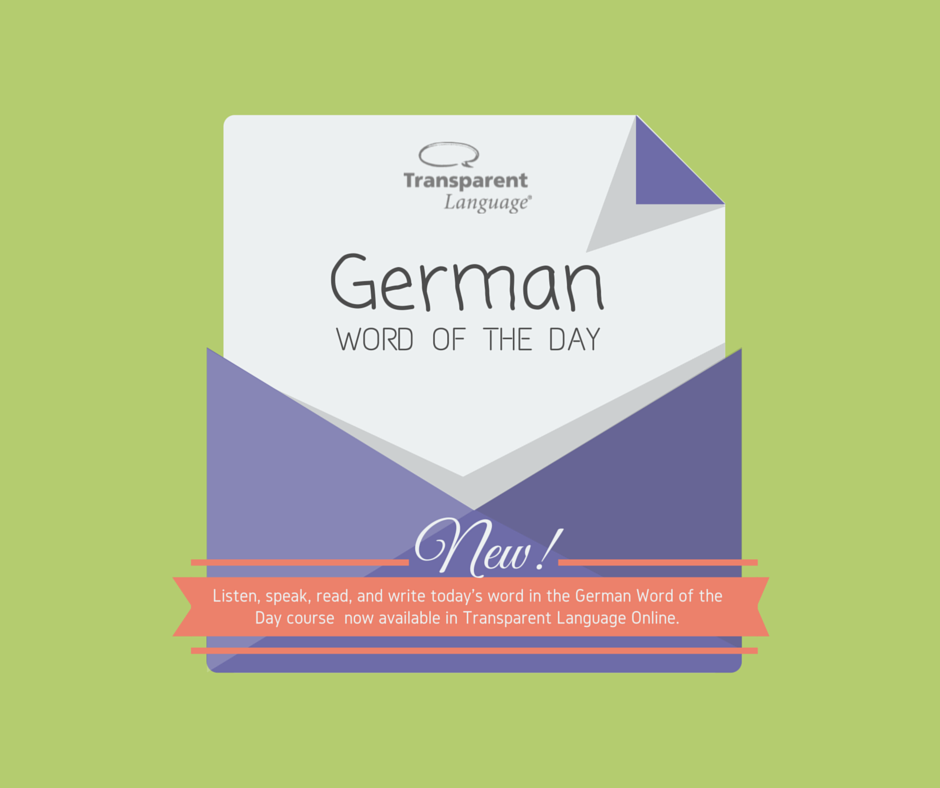

The word am is a combination of an (“in/on”) and dem (dative masculine form of “the”). In German, you say “ am Montag” – literally, “ on the Monday”.
#German word of the day how to#
How to say “On Monday”, “On Tuesday”, etc.


If you do something “at the weekend”, you say an der Wochenende. They're Woche and Wochenende respectively. So “ich werde es übermorgen tun” means “I'll do it the day after tomorrow”.įinally, you should know how to say “week” and “weekend” in German. What about the days before gestern and after morgen? In English we say “the day before yesterday” and “the day after tomorrow”, but German has special words: vorgestern and übermorgen respectively. If you want to say “tomorrow (in the) morning”, say morgen früh – “tomorrow early”. If someone says dieser Morgen, you'll know they mean “this morning”, because “this tomorrow” doesn't make sense. It's usually obvious from the context whether morgen means “tomorrow” or “morning”. Morgen can also mean “morning”, which can get slightly confusing. If we're going to talk about days in German, there are some other things you should know, like Gestern, heute, and morgen mean “yesterday”, “today”, and “tomorrow” respectively. Hmmm… can you guess where the English word might have come from? How to Say “Yesterday”, “Today” and “Tomorrow” in German It comes from Sonne, which is the German word for “sun”. It has similar roots to the French samedi and the Spanish sábado. Sambaton in turn comes from an older Greek word sabbaton, which is related to the word “Sabbath”. The latter is only heard in northern and western Germany, and never in Austria or Switzerland. “Saturday” in German is Samstag, or alternatively Sonnabend (“Sun-evening”). In both languages the name comes from the god Frige (sometimes spelled “Frig”). You can spot the obvious connection between the English and German words. The English “Thursday” is also named after Thor – “Thor’s day”. In German-speaking cultures, the Norse god Thor is known as Donar. You know, the Norse hammer-wielding god who was later transformed into a Marvel comic superhero. Donner is the German word for “thunder” – so Donnerstag means “thunder's day”. It's the only day whose name doesn't end in “Tag”. You guessed it, that’s also where we get “Tuesday” from. The origins of this name are thought to go back to the old Germanic god Týr. In fact, that's where the English word “Monday” comes from too.įun fact: in German-speaking countries, Montag is considered to be the first day of the week (as opposed to some places where Sunday is considered the first). The name comes from Mond, the German word for “moon”. German Days of the Week “Monday” in German: Montag


 0 kommentar(er)
0 kommentar(er)
